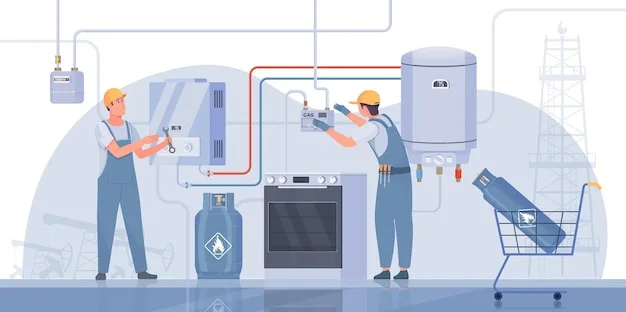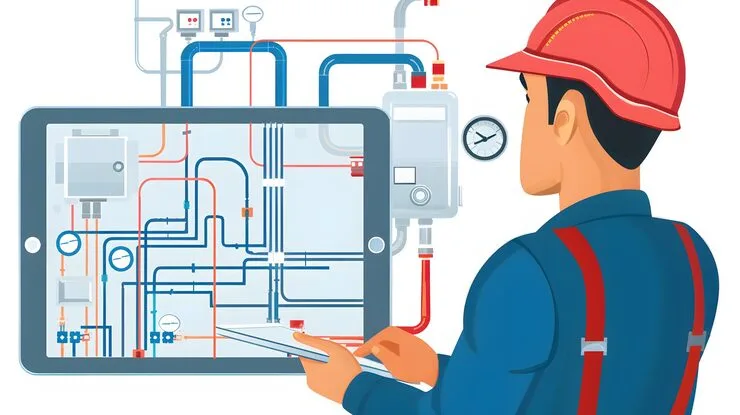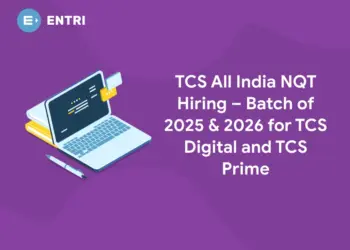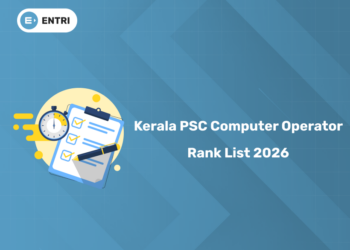Table of Contents
If you’ve ever imagined yourself in an exciting, opportunity-rich, and chill environment, becoming an MEP engineer could be the best professional decision of your life. Let’s examine the route, benefits, and peculiarities of Mechanical, Electrical, and Plumbing (MEP) engineering before you dive in.
Becoming an MEP engineer involves a combination of education, experience, and licensure. Here’s a step-by-step guide on how to become an MEP engineer:
How To Become an MEP Engineer Step-by-Step Guide
Step 1: Earn a Bachelor’s Degree in Engineering
The first step to becoming an MEP engineer is to earn a bachelor’s degree in engineering. While a bachelor’s degree in mechanical or electrical engineering is the most common path, other relevant engineering disciplines such as civil, architectural, or environmental engineering can also provide a solid foundation for an MEP career.
During your undergraduate studies, focus on coursework in areas such as:
- Thermodynamics
- Fluid mechanics
- Heat transfer
- Electrical circuits
- Electric power systems
- Lighting and controls
- Building systems design
Step 2: Gain Practical Experience
While theoretical knowledge is essential, practical experience is equally important for aspiring MEP engineers. Internships and co-op placements during your undergraduate studies can provide valuable hands-on experience in the MEP field. Additionally, consider seeking entry-level positions in MEP consulting firms or engineering companies after graduation to gain further experience in the industry.
Step 3: Become an Engineer-in-Training (EIT)
Once you have completed your bachelor’s degree and have gained some relevant work experience, you can apply to become an Engineer-in-Training (EIT). This designation requires passing the Fundamentals of Engineering (FE) exam, which assesses your basic engineering knowledge and skills.
Step 4: Pursue Licensure
To become a licensed professional engineer (PE), you will need to fulfil additional requirements, including:
- Accumulating several years of relevant work experience under the supervision of a licensed PE
- Passing the Principles and Practice of Engineering (PE) exam, which is specific to your chosen engineering discipline
- Completing continuing education (CE) courses to maintain your licensure
Step 5: Develop Specialized Skills
MEP engineers specialize in various areas, such as HVAC, plumbing, fire protection, and lighting. As you gain experience, focus on developing expertise in a particular area to become a more valuable asset in the industry. Stay up-to-date with the latest technologies and trends in MEP systems to enhance your skills and knowledge.
Step 6: Join Professional Organizations
Joining professional organizations such as the American Society of Heating, Refrigerating and Air-Conditioning Engineers (ASHRAE) or the National Fire Protection Association (NFPA) can provide networking opportunities, access to continuing education courses, and insights into industry trends.
Why Learn MEP Course?
MEP Course When we walk through a commercial building we never get to see live naked Electrical wirings hanging out, pipelines going up and down inside the building and even the ventilation is designed into the structure that it looks like a piece of art. There are structures where it is visible in rare cases where it becomes a part of the aesthetics of interior design itself.
There are several causes for this. Similar to the strength of a building’s structure, adequate MEP (mechanical, electrical, and plumbing) systems are equally important for proper ventilation (heat management & air circulation), electrical system (from power grid to various outputs), and plumbing (which includes water supply & sewage disposal). This is due to the fact that a poor decision might occasionally cost a person their entire life.
When designing a structure, MEP designs are created in order to obtain government clearance for construction, provided that the different public health standards are met. The design of the installed firefighting systems is also included in MEP. A building’s longevity and safety are greatly influenced by its MEP designs. You may get comprehensive MEP training from Entri app, which guides you through international standards.
Master MEP Design with Industry-Leading Training!
Gain in-depth knowledge of Mechanical, Electrical, and Plumbing (MEP) Design with expert-led courses. Learn HVAC, fire safety, sustainable building strategies, and BIM applications to excel in the construction industry.
Know MoreScope of MEP Engineering in 2026
What will be the state of the MEP engineer employment market in 2026? It is, in fact, brighter than a thousand-watt lightbulb. MEP engineers are in great demand due to the expanding construction sector and the increased emphasis on green buildings.
Be prepared to work with government agencies, design firms, and construction corporations. You may even try your hand at consulting, where different clients will be interested in your knowledge.
As of 2026, the job market for Mechanical, Electrical, and Plumbing (MEP) engineers is robust and promising, characterized by a notable surge in demand attributable to a thriving construction industry and an escalating focus on sustainable and environmentally friendly building practices.
So, pursuing an MEP course is of course not a time waste. This heightened demand is primarily driven by a confluence of factors, making the prospects for MEP engineers brighter than ever. Let us give you a distinctive overview so that you can understand where to utilize your capabilities.
|
Engineering Upskilling Courses
|
| MEP Course |
| BIM Course |
| Quantity Surveyor Course |
| Structural Design Course |
| MEP QS Course |
Challenges and Quirks
Not everything in MEP engineering is sunshine and rainbows. You will face a good number of difficulties. MEP engineers frequently struggle to coordinate with other disciplines, and it may be difficult to stay up to date with the quickly evolving technology in their profession. They must adhere to strict budgetary constraints and project deadlines.
Nonetheless, this set of difficulties improves channels of communication to guarantee improved coordination and assist them in keeping abreast of developments in the technology and business. It also uses efficient project management techniques to discover economical solutions without sacrificing quality or meeting deadlines.
Conclusion
With the evolving career landscape, and unprecedented infrastructure growth along with tech integration, MEP engineering offers unmatched stability and innovative potential. This is the case especially in India, where green mandates and smart cities amplify demand. This experts guide must have equipped you with ample understanding to make informed decision.
Start your journey today with targeted education and upskilling. You can not just enter but lead this dynamic field, commanding top salaries and shaping sustainable futures.
Master MEP Design with Industry-Leading Training!
Gain in-depth knowledge of Mechanical, Electrical, and Plumbing (MEP) Design with expert-led courses. Learn HVAC, fire safety, sustainable building strategies, and BIM applications to excel in the construction industry.
Know MoreFrequently Asked Questions
What degree do you need to become an MEP engineer?
A bachelor’s degree in mechanical, electrical, civil engineering or one of the many MEP-specific programs offered by AICTE-approved colleges is a must – programmes that cover the basics of thermodynamics, circuits, fluid mechanics and the latest thinking on sustainability are especially useful.
How long does it take to become a licensed MEP engineer in India?
Typically, it takes around 8-10 years – that’s 4 years for your B.Tech degree, then 4-5 years of supervised experience and finishing off by passing the IEI PE exam (or equivalent) plus doing your ongoing professional development.
What skills do MEP engineers need to be good at?
There are a few key ones: you need to be proficient in BIM tools like Revit and Navisworks, know your AutoCAD, have a good grasp of HVAC design, be able to think about sustainable design and practice, and be comfortable with AI energy modelling, IoT integration and all that kind of thing – especially with the green building trends that are going on at the moment.
How much does an MEP engineer in India typically earn in 2026?
Well, freshers tend to earn anything between ₹4.5 – 8 LPA, mid-level engineers between ₹12 -21.5 LPA, and for the most experienced ones it really depends on the city they are in the sort of skills they have – like for people with BIM expertise who are working in high demand areas like Mumbai or Bangalore, the pay can be very high.
What are the latest trends in MEP engineering for 2026?
There are a few things that are really hot at the moment – like smart buildings with IoT sensors, AI-optimised energy systems, using BIM-digital twins for clash detection, doing sustainable designs like net-zero HVAC and doing modular prefabrication.
Do you need internships to become a successful MEP engineer?
Absolutely – doing internships in EPC firms or consultancies really helps you get hands-on experience with BIM, site coordination and projects that you just can’t get in a classroom.
What certifications should MEP engineers aim for?
IEI PE license, ASHRAE certifications, LEED for green design and BIM professional credentials – all of these can really help you in your career, especially if you’re working on sustainable and tech-driven projects.
Can a civil engineer switch to being an MEP engineer?
Yeah, it’s possible – with some additional coursework or certifications in HVAC/electrical, plus some practical experience that draws on your structural knowledge, you can definitely make the transition.
What software tools do MEP engineers use?
You’re probably going to be using Revit MEP for modelling, AutoCAD for drafting, Navisworks for coordination, HAP/Carrier for load calculations and all sorts of AI tools for predictive analytics.
What professional organisations are a good bet for MEP careers?
ISHRAE, ASHRAE India, IEI and NFPA are all great places to network, get some webinars and certifications to keep you ahead of the game in smart building innovations.















